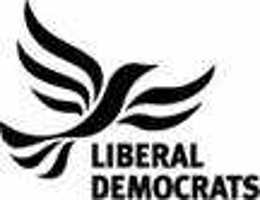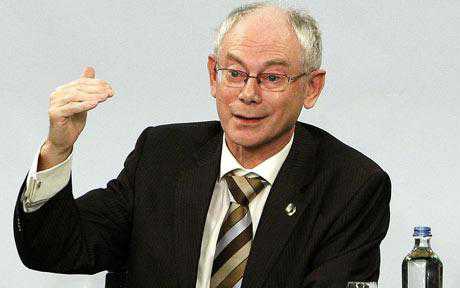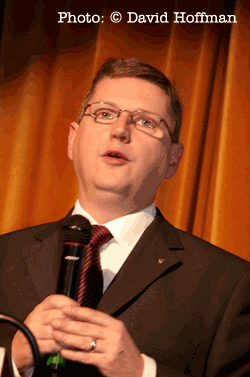adopted in STRASBOURG, on the 10th f February 2010
The European Parliament,
– having regard to the Commission’s Turkey 2009 Progress Report (SEC(2009)1334),
– having regard to its resolutions of 27 September 2006 on Turkey’s progress towards accession1, of 24 October 2007 on EU-Turkey relations2, of 21 May 2008 on Turkey’s 2007 progress report3, and of 12 March 2009 on Turkey’s 2008 progress report4,
– having regard to the Negotiating Framework for Turkey of 3 October 2005,
– having regard to Council Decision 2008/157/EC of 18 February 2008 on the principles, priorities and conditions contained in the Accession Partnership with the Republic of Turkey5 (‘the Accession Partnership’), as well as to the previous Council decisions on the Accession Partnership of 2001, 2003 and 2006,
– having regard to the conclusions of the European Council meeting of 10-11 December 2009;
– having regard to Rule 110(2) of its Rules of Procedure,
A. whereas accession negotiations with Turkey were opened on 3 October 2005 after approval by the Council of the Negotiating Framework, and whereas the opening of those negotiations was the starting point for a long-lasting and open-ended process,
B. whereas Turkey has committed itself to reforms, good-neighbourly relations and progressive alignment with the EU, and whereas these efforts should be viewed as an opportunity for Turkey itself to modernise,
C. whereas full compliance with all the Copenhagen criteria and EU integration capacity, in accordance with the conclusions of December 2006 European Council meeting, remain the basis for accession to the EU, which is a community based on shared values,
D. whereas the Commission concluded that limited concrete progress was made on political reforms in 2009,
E. whereas Turkey has, for the fourth consecutive year, still not implemented the provisions stemming from the EC-Turkey Association Agreement and the Additional Protocol thereto,
F. whereas in its Turkey 2009 Progress Report, the Commission has taken up and elaborated on issues highlighted by Parliament in its last resolution on Turkey’s progress,
1. Welcomes the broad public debate on a range of traditionally sensitive issues such as the role of the judiciary, the rights of citizens of Kurdish origin, the rights of the Alevi community, the role of the military and Turkey’s relations with its neighbours; commends the Turkish Government for its constructive approach and its role in initiating that debate;
2. Reiterates its concern about the ongoing polarisation within Turkish society and between political parties, and urges the Government, as well as all parliamentary parties, to develop an appropriate balance between political competition and pragmatic cooperation, so as to facilitate reconciliation within Turkish society and to enable the realisation of key reforms, in particular that of the Constitution;
3. Notes that progress in terms of concrete reforms remained limited in 2009, and encourages the Government to translate its political initiatives into concrete amendments to legislation and their subsequent implementation;
4. Regrets the fact that, where legislation relevant to the Copenhagen political criteria is in place, its implementation continues to be insufficient; urges the Government in particular to intensify the implementation of legislation in the areas of women’s rights, non-discrimination, freedom of religion, thought and belief, freedom of speech and expression, zero tolerance of torture and the fight against corruption;
5. Calls on Turkey to continue and intensify its efforts to fully meet the Copenhagen criteria and to bring Turkish society together in support of the necessary reforms, uniting it on the basis of the equality of every human being irrespective of gender, racial or ethnic origin, religion or belief, disability, age or sexual orientation;
Fulfilling the Copenhagen political criteria
Democracy and the rule of law
6. Draws attention once again to the crucial importance of a comprehensive and substantive reform of the Constitution which would place the protection of human rights and fundamental freedoms at the core of the Turkish State and society; encourages the Turkish Government to resume work on that reform and calls for the cooperation of all political parties and the involvement of civil society and all minorities;
7. Reiterates its call from its previous resolutions in 2006 and 2007 for the electoral system to be reformed by reducing the threshold of 10%, thereby ensuring party pluralism, especially in order to allow newly founded parties to gain access to the political process, as well as wider representation of political forces and minorities in the Grand National Assembly;
8. Deeply regrets the decision of the Constitutional Court to close the Democratic Society Party (DTP) and ban a number of its democratically elected representatives from political activity; regrets also the recent arrests of DTP members; reiterates its condemnation of violence and terrorism and urges all political forces to seek reconciliation by peaceful means and to unite Turkish society on the basis of equal rights for every citizen; stresses that the political representatives of the Kurdish population must be enabled to fully participate in this process; draws attention to the opinion delivered by the Venice Commission of the Council of Europe in March 2009, which concluded that Turkish legislation governing the closure of political parties is not compatible with the European Convention on Human Rights (ECHR), and urges the Government to make the necessary reform proposals, respecting European standards;
9. Is of the view that a comprehensive and swift reform of the judiciary is vital for the success of the modernisation process in Turkey; welcomes the Government’s approval of the judiciary reform strategy and notes with satisfaction the broad consultative process on which it was built; encourages the Government to implement the strategy without delay, with particular attention to systematic measures to enhance the impartiality and professionalism of the judiciary, as well as its compliance with the standards of the ECHR; in this context, calls on the Turkish Government to issue guidance to prosecutors regarding laws that are frequently used to limit freedom of expression; also encourages the Government to restructure the High Council of Judges and Prosecutors, so as to ensure its representativeness, objectiveness, impartiality and transparency;
10. Deeply regrets the decision of the Constitutional Court to annul the legislation limiting the jurisdiction of military courts as a serious setback in Turkey’s reform efforts, and calls on the Turkish Grand National Assembly to establish a consensus in favour of constitutional reform; is concerned about the continuing involvement of the military in Turkish politics and foreign policy, and reiterates that in a democratic society the military must be fully subject to civilian oversight; calls in particular on the Turkish Grand National Assembly to enhance its oversight of the military budget and expenditure and to engage in the development of security and defence policies;
11. Is concerned about the alleged magnitude of the Ergenekon criminal network and the Sledgehammer Plan; urges the Government and the judiciary to ensure that all proceedings are fully in line with the due process of law and that the rights of all defendants are respected; shares the assessment of the Commission that Turkey must approach this case as an opportunity to strengthen confidence in the proper functioning of its democratic institutions and the rule of law; urges the Turkish Government not to allow legal proceedings to be used as a pretext to exert undue pressure on critical journalists, academics or opposition politicians;
12. Regrets that no progress has been made on establishing the Ombudsman’s office; urges the Government to introduce, and all parliamentary parties to support, the necessary legislation establishing an effective, independent complaints mechanism linked to a system for carrying out investigations into alleged human rights violations;
Human rights and respect for, and protection of, minorities
13. Welcomes the initiatives taken by the Turkish Government to bring Turkish citizens together and enable every citizen, irrespective of gender, racial or ethnic origin, religion or belief, disability, age or sexual orientation, to enjoy equal rights and play an active role in Turkish society; is aware that this is a historic debate, but strongly urges the Government to translate its political initiative into concrete reforms and calls on all political parties and all players involved to support this process, while striving to overcome mutual sensitivities; welcomes in this context the plan presented by the Government to the Turkish Grand National Assembly on 13 November 2009 and encourages it to implement it, so as to ensure that the freedoms of all citizens are guaranteed;
14. Welcomes the adoption of legislation removing all restrictions on broadcasting in the Kurdish language by private and public channels both at local and national level, as well as of legislation on the use of the Kurdish language in prisons; urges the Government to take further measures ensuring real opportunities to learn Kurdish within the public and private schooling system and allowing Kurdish to be used in political life and in access to public services; calls on the Government to make sure that anti-terror laws are not misused to restrict fundamental freedoms, in particular freedom of expression, and to abolish the system of village guards in the south-east of Turkey;
15. Supports the intention of the Turkish Grand National Assembly to swiftly adopt amendments to the Anti-Terror Law in order to delete the provisions allowing children between fifteen and eighteen years of age to be tried as adults;
16. Encourages the Turkish Government to intensify its efforts to overcome social and economic deficiencies in the south-east; reiterates its call on the Commission to present a study on the consequences of the Southeast Anatolia Project (GAP); calls on the Turkish authorities to preserve the cultural and environmental heritage concerned in this context, with particular reference to the archaeological sites of Hasankeyf and Allianoi; is concerned about the displacement of thousands of people resulting from the construction of the dams; urges the Government to cease work on the Ilisu dam project until the above-mentioned Commission study is presented;
17. Urges the Turkish Grand National Assembly to ensure that parliamentary immunity covering the expression of political opinions is guaranteed to all members of parliament, without any discrimination;
18. Condemns the continuing violence perpetrated by the PKK and other terrorist groups on Turkish soil, and urges the PKK to respond to the political initiative of the Turkish Government by laying down its arms and putting an end to violence;
19. Emphasises freedom of religion as a universal fundamental value and calls on Turkey to safeguard it for all; welcomes the dialogue entered into by the Turkish Government with representatives of religious communities, including the Alevis, and encourages the authorities to intensify the interreligious dialogue, so as to establish regular and constructive communication; reiterates, however, once again, that positive steps and gestures must be followed by substantial reforms of the legal framework, which must enable these religious communities to function without undue constraints, in line with the ECHR and the case law of the European Court of Human Rights; underlines in particular the need for all religious communities to be granted legal personality;
20. Welcomes the implementation of the Law on Foundations; regrets, however, that the religious communities continue to face property problems not addressed by that law, concerning properties seized and sold to third parties or properties of foundations merged before the new legislation was adopted; urges the Turkish Government to address this issue without delay;
21. Reiterates its concern about the obstacles faced by the Ecumenical Patriarchate concerning its legal status, the training of its clergy and elections of the Ecumenical Patriarch; repeats its call for the immediate reopening of the Greek Orthodox Halki seminary and for measures to permit the public use of the ecclesiastical title of the Ecumenical Patriarch and more generally to create the conditions for the unhindered training of the clergy of Christian communities in Turkey;
22. Regrets that uncertainty persists concerning the recognition of Cem houses as Alevi places of worship and concerning compulsory religious education in schools; calls on the Turkish Government systematically to remedy this situation;
23. Is concerned by the difficulties encountered by Syriacs in relation to their property ownership; in particular, points with concern to the court cases concerning expropriation in relation to the Mor Gabriel Syriac Orthodox monastery;
24. Deplores the fact that the Turkish Government continues to have reservations concerning the rights of minorities as enshrined in international law, that it has not yet signed relevant Council of Europe conventions and that it has not yet entered into a dialogue with the High Commissioner on National Minorities of the Organisation for Security and Cooperation in Europe (OSCE); urges the Government to bring its policy fully into line with international standards and the ECHR, and calls on all parliamentary parties to support this move; notes, in this respect, the administrative difficulties faced by minority schools and the anachronistic dual presidency system; in addition, urges the Government actively to foster a climate of full respect for minorities, and to ensure that cases of hostility and violence are brought before the courts;
25. Regrets that there has been no encouraging development since Turkey’s 2008 progress report regarding the Greek population of the islands Gökçeada (Imvros) and Bozcaada (Tenedos), which continues to encounter problems with property rights and education; urges the Turkish Government therefore to seek solutions to preserve the bicultural character of these islands in line with the resolution of 27 June 2008 of the Parliamentary Assembly of the Council of Europe (PACE) concerning the islands;
26. Is concerned that the Turkish legal framework still fails to provide sufficient guarantees with regard to freedom of expression and that certain laws continue to be misused, so as to restrict that freedom; calls on the Turkish Government to propose a comprehensive reform of the legal framework in order to ensure its compatibility with the ECHR and the case law of the European Court of Human Rights; notes that the revision of Article 301 of the Turkish Criminal Code led to a significant decline in prosecutions compared with previous years; continues however to be of the view that Articles 301 and 318 should be repealed;
27. Remains concerned that Turkey does not grant the right to conscientious objection to compulsory military service and that no civilian alternative is available; deplores the fact that the 2006 ECHR judgment in the case of Ülke vs. Turkey requiring Turkey to amend legislation allowing the repeated prosecution and conviction of conscientious objectors remains unexecuted and calls upon the Government to execute the judgment without delay;
28. Is concerned about continued restrictions on press freedom, particularly on reporting on the investigations into the Ergenekon network and in the light of the imposition of an unprecedented fine on a media group as well as frequent website bans; stresses that the cultivation of press freedom is an important sign of political culture in a pluralistic society; recommends that, in this context and in the light of the unhealthy links between media, business and politics, a new media law be adopted;
29. Calls on the Turkish Government to intensify its efforts with regard to implementation of the policy of zero tolerance of torture, and, in order to underscore the credibility of those efforts, to authorise the publication of the report of the Council of Europe’s Committee for the Prevention of Torture; once again urges the Turkish Grand National Assembly to ratify the Optional Protocol on the UN Convention against Torture; also urges the Government to strive for reduction of impunity for human rights violations, in particular among law enforcement officials;
30. Urges the Turkish Government to devote further attention to eradicating corruption, to increase the transparency of funding of political parties and election campaigns and to promote openness of administration at all levels;
31. Encourages the Government to increase its efforts to translate gender equality, as guaranteed by law, into practice; in particular, considers that a strategy for women’s education and employment should be prepared, reducing the employment of women in the grey economy; calls on the Government to avail itself of the potential of civil society organisations, especially when it comes to raising awareness of women’s rights, the prevention of violence and so-called ‘honour killings’; points out that the Government and the judiciary need to ensure that all cases of violence and discrimination against women are duly brought before the courts and the offenders punished, and that women and children in danger of violence or honour killings are protected and supported by the authorities; encourages the Turkish Government to initiate an effective communication campaign in order to increase awareness of women’s rights throughout the whole country;
32. Acknowledges that the legal framework for dealing with domestic violence, honour killings and early forced marriages is in place, but points out that there are concerns regarding implementation; calls, therefore, on the authorities to provide protection for victims by increasing the number of shelters and other facilities; draws attention to the fact that the level of female employment in Turkey is the lowest among all OECD countries and should be raised in order to promote women’s economic rights and independence;
33. Is concerned about the lack of guarantees against discrimination on the basis of sexual orientation; calls on the Turkish Grand National Assembly to adopt a new law prohibiting direct and indirect discrimination on all grounds and in all areas, and calls upon the Turkish Government to intensify its public awareness efforts concerning individual human rights and anti-discrimination, to ensure that discriminatory provisions are removed from legislation and that hatred and violence based on homophobia are duly punished;
34. Regrets the lack of progress concerning trade union rights and calls once again on the Government, in consultation with social partners, to present a new proposal to the Turkish Grand National Assembly in order to adopt, without any further delay, a new law on trade unions that is in line with International Labour Organisation standards, including safeguards for the right to strike and negotiate collective agreements; expresses its concern about the recent arrest (in mid-November 2009) of some 20 Turkish trade unionists, and calls for their social rights to be strictly respected;
Ability to take on the obligations of membership
35. Deplores the fact that, for the fourth consecutive year, the Additional Protocol to the EC-Turkey Association Agreement has not been implemented by Turkey; calls on the Turkish Government to implement it fully without delay, in a non-discriminatory way, and recalls that failure to do so may further seriously affect the negotiating process;
Commitment to good-neighbourly relations
36. Reiterates Turkey’s unequivocal obligation to maintain good-neighbourly relations as provided for by the negotiating framework; underlines its undertaking together with all other parties to support the efforts to achieve a comprehensive settlement of the Cyprus problem and to resolve any outstanding border disputes with neighbouring countries in conformity with the principle of peaceful settlement of disputes in accordance with the United Nations Charter;
37. Calls on the Turkish Government and all parties concerned actively to support the ongoing negotiations, and to contribute in concrete terms to the comprehensive settlement of the Cyprus issue, based on a bizonal, bicommunal federation, in line with the relevant UN Security Council resolutions and the principles on which the EU is founded; calls on Turkey to facilitate a suitable climate for negotiations by immediately starting to withdraw its forces from Cyprus, by addressing the issue of the settlement of Turkish citizens on the island and also by enabling the return of the sealed-off section of Famagusta to its lawful inhabitants in compliance with Resolution 550(1984) of the United Nations Security Council;
38. Calls on the Turkish Government to cease hindering civilian vessels prospecting for oil on behalf of the Republic of Cyprus in the eastern Mediterranean;
39. Urges Turkey to ensure that the rights of all displaced persons in Cyprus are respected, including those of religious minorities, and that they are allowed freely to exercise their religious rights; stresses that, in the case of the Catholic Maronite community, freedoms should also be accorded to all four Maronite villages;
40. Welcomes the reactivation of the Committee on Missing Persons (CMP) and calls on Turkey to take appropriate action on this humanitarian issue;
41. Commends the diplomatic efforts made to normalise relations with Armenia, and urges the Turkish Government to open the border with Armenia; calls on the Turkish Grand National Assembly and the Parliament of Armenia to ratify the relevant protocols without delay and without setting any preconditions, which would lead to enhanced regional security and stability in the South Caucasus region;
42. Takes note of the limited progress achieved in improving Turkish-Greek bilateral relations; calls on the Turkish Grand National Assembly to withdraw its casus belli threat, and expects the Turkish Government to end the continued violations of Greek airspace;
43. Welcomes the continued improvement of relations with Iraq and with the Kurdish regional government; stresses once again its appeal to the Turkish Government to ensure that any anti-terrorist operation that is conducted fully respects Iraq’s territorial integrity, human rights and international law, and that civilian casualties are avoided;
Deepening EU-Turkey cooperation
44. Notes the start of negotiations on Turkey’s accession to the Energy Community; welcomes Turkey’s signing of the Intergovernmental Agreement on the Nabucco gas pipeline, the implementation of which remains one of the EU’s highest energy security priorities, and calls for opening of the energy chapter in the accession negotiations; notes at the same time the cooperation between Turkey, Russia and some EU Member States on the South Stream project;
45. Points to Turkey’s importance as a transit and destination country for irregular migration; calls on the Turkish Government to take urgent steps to ensure that the international rights to protection and reception of migrants and asylum-seekers are respected; takes note of the resumption of negotiations on an EU-Turkey readmission agreement, and urges Turkey fully to implement, in the meantime, the existing bilateral readmission agreements with the Member States; calls on the Turkish Government to step up its cooperation with the EU on migration management, the fight against crossborder crime and human trafficking; notes in this context Turkey’s efforts with a view to concluding a working arrangement with Frontex;
46. Notes Turkey’s increasingly active foreign policy and appreciates its efforts to contribute to solutions in various crisis regions; calls on the Turkish Government to intensify its foreign policy coordination with the EU, in particular as regards Iran; acknowledges Turkey’s role as an important partner of the EU with a view to the realisation of EU foreign policy goals in the Black Sea region, Central Asia and the broader Middle East; calls on the Commission and the Council to better exploit the potential of close EU-Turkey relations in these regions;
47. Appreciates Turkey’s continuous contribution to the European Security and Defence Policy and NATO operations; regrets, however, that NATO-EU strategic cooperation extending beyond the ‘Berlin plus’ arrangements continues to be blocked by Turkey’s objections, which has negative consequences for the protection of the EU personnel deployed, and urges Turkey to set aside those objections as soon as possible;
48. Calls once again on the Turkish Government to sign and submit for ratification the Statute of the International Criminal Court, thus further increasing Turkey’s contribution to, and engagement in, the global multilateral system;
49. Calls on the EU’s High Representative for Foreign Affairs and Security Policy to analyse synergies between the EU’s and Turkey’s foreign policies and to make more intensive use of them in order to contribute to security and stability in the world;
50. Urges Turkey to act pragmatically and do its utmost to ensure the success of the negotiations between the Greek and Turkish Cypriot leaders, which are now reaching a critical stage; notes that this is possibly the last opportunity to settle the long-running division of the island; welcomes the appreciation expressed by the Secretary General of the United Nations concerning the determined efforts of the leaders of the two communities in Cyprus, Mr Christofias and Mr Talat, to reach a comprehensive settlement;
51. Believes that a settlement of the Cyprus question will bring greater stability, prosperity and security to the Eastern Mediterranean and allow a rapid improvement in EU-NATO relations as well as unblocking Turkey’s own accession process to the European Union; proposes, therefore, that Turkey join with the other guarantor powers, Greece and the UK, in pledging to back any agreement that can be reached by Mr Christofias and Mr Talat for the reunification of Cyprus which meets with the approval of the UN Security Council;
52. Takes note of the Court of Auditors’ Special Report No 16/2009, identifying a series of weaknesses in the management of the pre-accession assistance to Turkey; notes however that in the Court’s assessment, the projects audited did produce their intended results and that these are likely to be sustainable; calls on the Commission to implement the recommendations of the Report of the Court of Auditors when providing assistance under the Instrument for Pre-accession (IPA), in particular to prioritise targets and thus projects in line with accession criteria; requests the Commission to launch, in particular, an evaluation of the entire programme of pre-accession assistance and report about its implementation to the European Parliament;
53. Instructs its President to forward this resolution to the Council, the Commission, and the Secretary General of the Council of Europe, the President of the European Court of Human Rights, the governments and parliaments of the Member States and the Government and Parliament of the Republic of Turkey.









